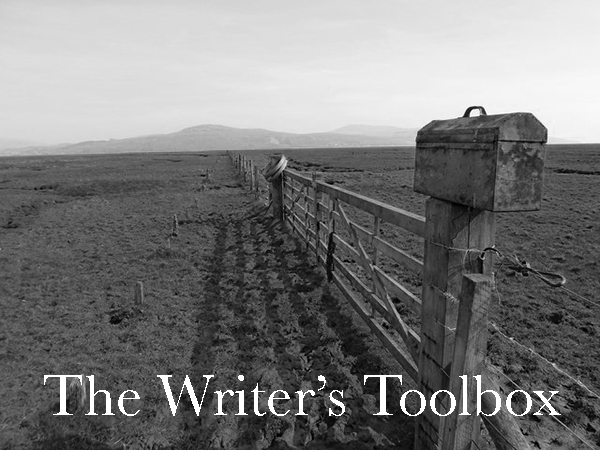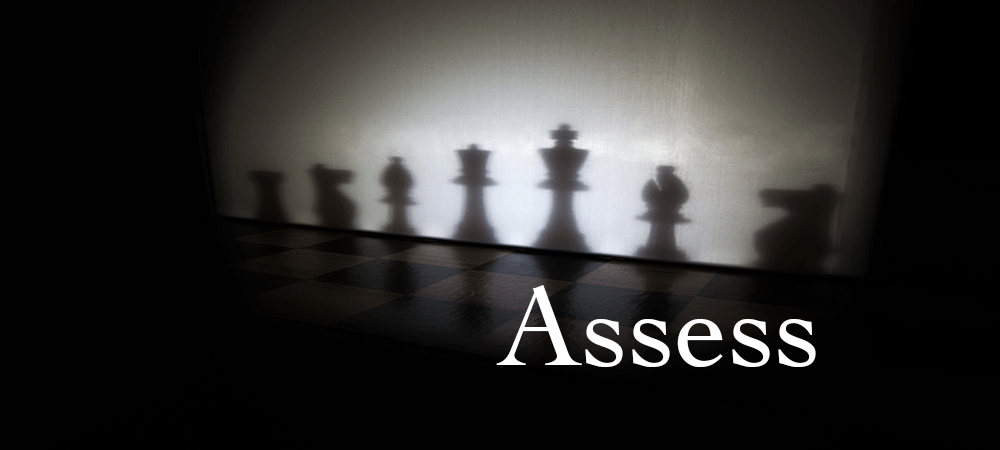No Results Found
The page you requested could not be found. Try refining your search, or use the navigation above to locate the post.

I’m sitting here thinking of that old baseball movie where Kevin Costner builds a baseball field in some remote cornfield, and by the magic of the game itself, people begin to flock to that reinvigorated part of the earth. I’m wondering if the same magic can, could, or will happen here. Writing is as exciting as baseball–isn’t it?
Probably not, but it’s worth a shot.
Up until now, this site has been pretty much just a place for my students at The Fenn School to collect assignments, find the rubrics for writing and to engage in the discussion forums–but it has never really been open to or geared towards the general public.
My brother Tom, a successful business executive, once remarked that my approach to marketing is like a man opening a sushi restaurant with a big sign outside that say’s “Cold, Dead Fish for Sale.” And he is pretty close to the truth in that assessment, for my love for my music, writing and teaching has always been (and always will be) rooted in that one word–love. I do love what I do, and I “love” sharing what is quintessentially “me,” warts and all.
I added the “Welcome” essay to my site not to be self-deprecating, but simply to emphasize that I am not proclaiming this site to be anything more than it is–one man’s attempt to share who I am, what I do, and why I like doing what I do.
I have been a family prolific blogger for the past ten years, though my blogs have been spread around my private blogs I share with my students, a Typepad blog that I used for many years, and a blog I have kept intermittently on my music website JohnFitz.com. My hope is to now keep everything here. My larger hope is to host blogging communities directly on this site so that people who want to blog with a community of like-minded writers, musicians, poets and journalists (as in folks who simply want to share the art of journaling) can find a safe, supportive, and dynamic place to engage in the art and craft of what they like doing–and if that is something that interests you, I would be happy to have you as one of my first bloggers!
This is essentially “day one” for me, and it is pretty good to be here right now doing this. How it unfolds (and in some cases, I’m sure, folds) is the big unknown, but as Thoreau once wrote, “You only hit what you aim at, so aim high.” My highest aim is to realize the loftiness of my dreams–and to cling to those dreams however attainable or unattainable they may be.
So it begins…

Close Your Eyes & See
A lot of things in life fall short of the mark, but thoughtfulness has never let me down. For some forty years I have faithfully kept journals of the wanderings of my mind—most of which is lost in some way or another, but the effect hangs on like a sailor clinging to a piece of flotsam: it proves to me that I am real and not lost; it creates substance out of what might otherwise be ephemeral ether lost to the vagaries of procrastinated time. In the meandering evolution of my words set to page is left a lingering mark etched into a marble wall of time that can never be sandblasted clean.
Simple reminders that I am what I am.
It is almost frightening to know that who I am is freighted with an urgency to continually change what I am. The irony is in how tightly I must shut my eyes to see clearly into myself. Stripped bare I am a meagre and skeletal portrait of a man—a shaky scaffold of dreams and desires connected inextricably to the pulsing aorta of reality.
Life. Ineffable life.
But it can not be any other way.
I am doomed and emboldened to speak the voice that barks and sings, laments and praises, and shouts and drones the inexcusable and intransigent me in glorious triumph and ignominious defeat. I need to see my reflection in stark contrasts: I need a barometric gauge to sense and measure the depth of the coming storms or easy weather. I need to know when to set anchor or set sail.
And all I have is words to guide me.
Words and love are all that is real to me, but it is only words that I question. I do not question my love or unequivocal devotion to Denise or our children or the eclectic diaspora of extended family. I only struggle with the constructs I create. I question my words because they are not created for me—they are created for you; hence, they are weighted by all that preys upon me: vanity, desire and a mania for a purposeful and meaningful life—the very stating of which is almost an anathema, a self-aggrandizing denial and abnegation of human empathy!
Stripped of words I can only utter and respond to what is palpably real and connected to me. I protect my own in spite of all else. Viciously so. And that is good and right and is built into me, and it is unerringly built into me by the hands of a creator beyond my understanding, enough so that I question my reflection on any still waters I see. Beyond faith. Beyond the myopia of circumstance. Beyond anything we share. I am left with words.
It simply is.
I write because I know no other way, but I have no illusions that my path is leading to a greater source. I am constantly humbled by the misdirections I follow. I am less of a guide than a foot soldier commandeered to go foot-first into the minefields of a greater field laced with weed and flower. My solace is that I am still alive—that somehow I have navigated well enough to be where I am—safe, secure, and almost retired into a golden age. I covet my joy like a child his or her inheritance of perpetual splendor. I cannot count or measure my blessings; I can only pass them on.
So I close my eyes at night and expect an infinite dawn.
And so can you.

Assessment is a terrifying word. I know my students fear it is just a softer term for the harshness of grading–an even more terrifying word, but if we do not assess everything we do, we become the proverbial bearers of repeated mistakes. There are few things that tick my students off more than to get a grade that seems pulled out thin air, riddled with inconsistencies, and is more punitive than enlightening or helpful—but grade we must. It is the Sysyphean chore and duty of every teacher—but does it have to be? Do we teachers have to be final arbiters of fate in this regard? Is there enough room and the grading house to allow the students in? Do our students have to always live like criminals turning themselves over to the authorities for every miscue and misdemeanor in their academic lives—and short of perfection, it seems to be their lot in life. But, if we do not let them in, and if we insist on being their judge and jury, we have squandered the greatest skill they need to master—to be able to to deconstruct their efforts with clear eyes, moral candor, and infinite hope of betterment. In short, let our teaching teach how to assess. Invite students in and let them share and dialogue and assess with us and with each other.
Research shows that we retain little of what we hear in the classroom. The odds increase somewhat (though not dramatically) when we also read what we are supposed to learn; however, learning increases dramatically when we need to present what we learn—and even more dramatically when asked to teach what we have learned. My own students know me as a bit of a pious bear when it comes to learning punctuation; however, as soon as I get on my podium and start talking about punctuation, the room is soon filled with what I call “grammar gas,” which always—as in always—works its way into the very souls of my captives until even the most focused, grade grubbing scholar fades from view and into their own solipsistic reveries—and sometimes simply slip into a hypnotic trance that actually mimics paying attention.
But (the proverbial “but”) when I free them to practice punctuation by watching my videos or laboring through interactive self-grading quizzes and worksheets, they will work endlessly until every single answer is right, and they will then strut around the classroom proud as peacocks to pronounce victory over a dreaded foe. The underlying magic in this approach is that they “see” what they need to do, and while they will never use the word “assess” they are actually living the experience of assessment. They have control of their respective destinies, and they intuitively know where and when they are screwing up and what they have to do to rectify the screw-ups. Putting these newfound skills into future writing pieces is another ballgame, but at least when that red pen circles the comma splice, they are the ones to take the blame, and they can look deeper into themselves for a solution instead of lamenting that I was grading them on something I barely taught!
During exam weeks, I am always amused by teachers who proclaim that no one in their class got higher than a C on his or her exam, as if it were solely the fault of the lazy students who did not prepare for the exam. I bite my tongue and never actually say that they had the whole year to teach what was on the exam. I shudder to think that my back surgeon needed to cram before boring into my spine with a drill! Knowledge needs to be organic. It needs to grow from a well-tended garden fertilized by a continual attention to what makes the fruits and flowers blossom and grow—but instead of a garden, too many students finish the year trying to make sense of a weed-patch of information until they hardly know the weeds from the crops. We move through our curriculums as if driven by a dark force that knows no other way. We teach. We assign. And we grade. And the vicious cycle leaves little room for true and effective mastery. We give what we think is helpful feedback and helpful criticism, but more often than not it is simply degrading commentary that diminishes more than it develops. None of us needs to be assessed more than we—students and teachers alike—as the creators of our works need to assess with skills and techniques that are helpful, hopeful, effective and practical in sustainable ways.
I am better at pontificating than problem solving, and I am loathe to have anyone come into my space and tell me what I should and should not do in my class. I am amazed every day by the sheer dedication I see in my colleagues in preparing their curriculums, grading great sheaves of papers, meeting with lost and wayward students, and easing the minds of over-anxious parents. But we are prey to our own inertia in all endeavors of life, and we need to rethink and retool the grading paradigm and channel our limited energies towards teaching students how to assess and how to move forward after assessing his or her work.
The bear that lurks in the corner of every classroom is the beast of time. No sooner has one task been completed when another rises from the ashes. The lesson planner becomes the tail that wags the dog, and to paraphrase Thoreau: we do not ride the railroad as much as the railroad rides upon us. Our destination is distant and our direction is fixed. The very notion of giving time to students to asses and reflect upon their work is a path fraught with peril and ambiguities, and so even the most well-intentioned and experienced educator is caught in the tangle of duty, obligation and tradition—and ultimately the energy for transformative change remains more dream than reality.
But you can’t jump a canyon in two jumps. We need to make the decision to change the way we grade, and our students need to learn to assess their own work in practical, pedagogically sound and sustainable ways—and we need to make the leap, or at least some of us have to make the jump, if only to show what is possible. All I know is that a good portion of my life is spent reading, marking up, and grading essays. In the crunch times of the year, this amounts to several hours at night when I should be watching NCIS with my kids. It’s crazy, as it seems we grade as if we are the ones being graded—and we are! These marked up essays make their ways into the critical banter in the hallways; they fall into the hands of parents who will dissect and parse our responses more than their children’s work, and we become the fodder of their disdainful gossip. In that sense, my way of grading works. I receive relatively few complaints and more than a share of praise for the efforts I put in, but I no longer think I am doing the right thing. I need to focus on teaching, not assuming a role as sole assessor and arbiter of right from wrong.
In my nostalgia for times gone by, I remember my days as a shop teacher when my most anxious moments at night was to remember to pick up ten 2×4’s at the lumberyard on the way to school—but maybe the approach in the woodshop is a better way. When working in the shop, I never grade their projects; I grade the process of the creation, which certainly levels the playing field. Most importantly, a shop student “knows” what the final product is supposed to look like. They work from drawings, plans, and blueprints; there is a logical and structure and sequence to the workflow, and they can palpably “see” when something is or has gone wrong. These bumps in the road are never a time for criticism—and the student willingly and eagerly seeks the help they need–but more of a time to “figure out” what is going wrong and how to fix it. The do not take the project home to work on the mistakes; they come to the next class ready to work through and overcome the setback. It is a lesson in teaching that can be built into any academic classroom.
The lightbulb for me is to do the heavy work in the classroom where a teacher has oversight of the process and approach—be it writing an essay, completing a lab report, compiling a presentation—or most anything! Homework needs to be what can realistically be completed at home and should be very specific to the needs of the work being done. With seven kids of my own, I have seen firsthand time and time again homework that requires to much processing time and not enough practice time. There is no reason that homework should be a source of massive anxiety, failure, and trepidation—it needs to be doable and calculated to take a certain amount of time, not a list which will take some 10 minutes and others thirty minutes, and it needs to be directly related to the work being done in the classroom. Now, when I assign thirty minutes of reading for homework, I make sure it is thirty minutes by providing audio that is thirty minutes long. If it is an essay or writing piece of some sort, I provide a detailed rubric (blueprint) for them to follow where I only expect a certain type of content not quality of content. If it something I want them to learn and practice by rote, I make sure it is measurable and limited using self-graded flashcard programs and interactive presentations and quizzes. If I grade any one piece of an assignment, it is the writing of a metacognition, which is a brief reflection on a students experience of the process. The refining of the content is always down in the shop…I mean, class.
I realize that to many teachers, my epiphany is no great thrust of genius, and it has been their common practice for years. It is a cornerstone of the flipped classroom, but it is certainly not an approach welcomed or practiced by the majority of teachers I know—some who are stubbornly clinging to the tried and true, some who sincerely disagree with me, and some who are too strapped for time to realistically rethink and retool what they do. The downside of my approach is the time and effort it takes to front-load the classwork and homework; the upside is a more empowered, confident and engaged student. Administrators would be wise to spend less time meeting with teachers and more time spent leading workshops and giving teachers the tools and time to develop and sustain this approach.
By doing the down and dirty work in the classroom, assessment becomes a natural and engaged action down with and through each student in an empowering and rarely punitive way. As teachers we need to see how and where a student struggle with our own eyes, mind and heart—and help them when needed, and we need to free them to figure it out when appropriate and, again, doable, which can only be done in the heady and invigorating dynamic of the classroom—the place where we as teachers have control and where out expectations can be carried out with a semblance of clarity and purpose. We cannot and never will be able to control the dynamic of the home environment. Never.
As always, I drone on. Sorry, but I get pumped just thinking of the possibilities of teaching that are more profound and enduring. Changing my ways (stubborn as I am) was a leap across a wide canyon, but the view from the other side is a pretty awesome view.
To assess is to progress. It is that simple.
The page you requested could not be found. Try refining your search, or use the navigation above to locate the post.


This is perhaps the biggest thunderstorm that I haven’t been in. The lightning is flashing and bolting to the ground, and the thunder is booming in every direction—though it is all five miles away. Here there is no wind or rain. The sky is bright directly overhead, but the tall pines on the far side of the field are backdropped in roiled, dark clouds.
Strange. There is a shift in the clouds. They are coming towards us now from the northeast….
I had to run from under the comfortable shelter under the awning of our RV and take some “shelter from the storm” as a huge gust of wind and pelting rain came at us from this strange direction. Just as suddenly, it shifted again and renewed its course to the southwest leaving me perplexed and dampened.
Writers often do the same thing with their writing. They build up a storm of unimagined intensity and create a looming confrontation between the opposing forces whom have been long at battle in their story line. Readers sense the impending conflict that will finally resolve the richly thickened plot; the wind whips, lightning flashes, thunder crashes and…
The storm takes a new direction—blows all hell and fury in another direction—and then returns to its insidious and relentless march to the sea (in New England, all thunderstorms march to the sea!) but the reader is no longer in the path of the storm; they are stranded like a desperate mariner on a now lonely shore watching the clouds boil away over the horizon. The writer, still caught up in his or her storm, assumes the reader is still with them anticipating the coming climax, but they are not. They’re more like me; they are left wondering why the storm took that irrational jog to the southeast, because that is the rational response to mystery—to ask why. There is no reason—aside from perhaps a schoolmasters admonitions—at require us to wade through the muck of tortured writing.
Most of us are rational and surprisingly intuitive, and a good writer needs to recognize and respect that reality. Good readers are like oft jilted lovers wary of another disappointing affair. They know when to put a book aside and find another writer, one who won’t let them down. They love the reward of a well-written story, an inspiring essay, or a compelling narrative; they love writers who consistently provide that reward, and they return to those writers over and again with their time, attention, and money.
A good writer is not in love with his or her own writing. They are in love with the process of writing well, regardless and because of their chosen genre! I will read and re-read Patrick O’Brien’s endless repertoire of naval sea novels, not because O’Brien’s novels are masterpieces of literature, but because he consistently provides a rewarding reading experience for “me” as someone who loves stories of naval battles! O’Brien found his niche, and he found his audience. It is an audience that he respected and worked tirelessly to please before passing away (sadly for his devoted audience eager for more novels) at a ripe old age. Though O’Brien will never be placed among the pantheon of “great” writers, what he aspired to do, he did well, and certainly well enough for me.
Thoreau once said, “Measure a man, not by what he is, but by what he aspires to be.” My readers are, by and large, writers who aspire to be better writers. In the greater scheme of things, I can only give you bits and pieces out of my own insights, experiences, and aspirations. I am only the proverbial finger pointing at the moon.
You will only reach the moon through your own labors.
~John Fitz
As with most poets trying to write a poem—in any style— the difficult part is getting started. In the complex swirl of life there might seem to be too many options, or not enough, and so a young poet may look like a confused archer in a chaotic battlefield. What a good poet realizes is that you can only shoot an arrow so far–and any attempt to shoot for something beyond his or her range is a recipe for failure.
But don’t worry; deep meaning is closer than you think.
Meaning can be found in the most common of situations: sitting around a table, laying in a field, or listening to a song. A poem does not have to be an epic battle. It is simply a way of seeing that our experiences of life can—and maybe should all be—meaningful. The reaching for a gallon of milk in the fridge can be a metaphor for love and care; the ringing of a phone can mean you are connected, or a simple wink of an eye can signify a mutual understanding. A poem is a package that is opened by the reader and appreciated with the same immediacy, even if the full use of the gift comes later—which it should if it is a good poem.
Start writing about something close at hand. You may well hot the target in the sweet spot.

Good writers borrow. Great writers steal…
And for these essays you are writing, steal from yourself.
All of you–both my 8th and 9th grades students–are smack dab in the middle of writing your essays. Everybody is under the gun timewise to finish these essays, so make your life easier: do not reinvent the wheel. You already made a bunch of wheels.
You guys in my 8th grade classes have reams of reflections about The Odyssey; likewise, my 9th grade class has already written quite a bit about Walden. Use what you have written. Steal your thoughts and recreate them in (perhaps) a more polished and structured form–a literary analysis paragraph!
I do it all the time. And I have yet to be caught and punished.
These essays should not require you to learn or study anything new. No writer writes well about anything he or she does not understand–even though they think they do–so just use some of the stuff you have already written and make them ready for the big time.
No joy for the writer. No joy for the reader. (oops…sorry Robert Frost.)
Few of you would bake a cake and not eat it. Most of you, especially if you are proud of your cake, would want to share your cake.
This is basically the idea behind your Odyssey Portfolio. Create something awesome. Share it.
A good protfolio is more than cut and paste. It is thoughful design. Rethinking. Redoing. Reimagining.
Anything can be made better.
And that is a good metaphor for life….
Here are couple of suggestions “if” you are interested.
Every museum has a main door, and that door is usually pretty interesting. I would consider using a separate page or even a blog as your welcome page. However, it should not be a blog with a bunch of posts, but rather a page that introduces and welcome readers/viewers to your Odyssey Portfolio. It may even be a place where you can put the video you have yet to create.
Consider making a page or pages for your writing pieces. It could be one page that a reader can scroll thorugh; it could be several different pages collated with analysis on one page, reflections on another, etc–or you could have a separate page for each writing piece.
The bottom line is that this is your portfolio, and it should refelct your taste, skills, and content.
We will have time to work on this in class on Friday, too.
Thanksgiving
I am surprised sometimes
by the suddenness of November:
beauty abruptly shed
to a common nakedness—
grasses deadened
by hoarfrost,
persistent memories
of people I’ve lost.
It is left to those of us
dressed in the hard
barky skin of experience
to insist on a decorum
that rises to the greatness
of a true Thanksgiving.
This is not a game,
against a badly scheduled team,
an uneven match on an uneven pitch.
This is Life.
This is Life.
This is Life.
Not politely mumbled phrases,
murmured with a practiced and meticulous earnestness.
Thanksgiving was born a breech-birth,
a screaming appreciation for being alive—
for not being one of the many
who didn’t make it—
who couldn’t moil through
another hardscrabble year
on tubers and scarce fowl.
Thanksgiving is for being you.
There are no thanks without you.
You are the power of hopeful promise;
you are the balky soil turning upon itself;
you are bursting forth in your experience.
You are not the person next to you—
not an image or an expectation.
You are the infinite and eternal you—
blessed, and loved, and consoled
by the utter commonness
and community of our souls.
We cry and we’re held.
We love and we hold.
We are the harvest of God,
constantly renewed,
constantly awakened,
to a new Thanksgiving.
~Fitz
Have a great break. Thanks for all of your good work this semester. No homework until you return!
Take your foot off the brakes, but keep your eyes on the road
~Fitz
Once, back in my days as a logger, I cut through a big white oak. I didn’t realize that the trunk was mostly rotten and hollow until my chain saw was most of the way through the monstrous tree. After the mad crush of the tree to the ground I noticed blood on my saw and on my legs. In cutting the tree down, I inadvertently massacred a whole raccoon family: a mom and seven incredibly small babies. I was pretty bummed about it all, but while moving the family out of the stump, I noticed the smallest ball of fur hobbling way on three legs.
One had survived. I picked him up and named him Rocky (after the main character in The Beatles big hit “Rocky Raccoon.” He fit into my shirt pocket with plenty of room to spare.
When I got home, I put him on the table in a cake dish filled with straw. I wasn’t even sure how to feed it. Its eyes were still closed. I heated up some milk in a pan on the stove and sucked some warm milk into an eye-dropper, and as luck would have it, Rocky slurped it up.
For the first few weeks warm milk was all Rocky could eat, but as time went on he grew into a fun little terror who would eat almost anything. He even learned to open the refrigerator door himself. He laid on his back in the mornings when I was milking my goats begging for me to squeeze the teats milk all over his face. He would steal the chickens’ eggs as if it were his birthright.
I felt like a young dad doing everything a dad needed to do. I wanted to raise a raccoon that could live in both worlds: the wild world and my world. After about six months Rocky was a pretty stout and healthy three-legged raccoon. I felt more and more confident that he could now live in both a feral and a wild world.
So I let Rocky outside on his own.
Later I saw a hawk circling overhead the hay field. I saw a coydog skulking in the tangle of brush beside the woods. I heard the awful cry of a fisher cat somewhere deep in the swamp.
Maybe I let Rocky go too soon. Maybe I should have given him a better rubric for life.
But that is no way to live…
Do you really need a rubric for this assignment?

So What’s Your Point?
The Uses and Abuses of Rhetoric
Knowing that you do not understand is a virtue; Not knowing that you do not understand is a defect.
—Lao Tzu
Nobody likes to be wrong, and for that matter, most of us “like” to be right. Few of us walk around writing, saying or thinking, “Boy, my opinions and views are certainly shallow, uninformed, and alarmingly trivial—but here is what I think….” We like to be assured that what we know and feel is valid and real and informed, for there is a serenity in knowing that we know—or that we have thoughtfully reached a level of knowingness that is somewhere near to certainty. I admit that a certain jealousy sweeps over me when I hear or read someone say exactly what I already think and feel (and though I knew) but I just never found the words or the way to say it with that much eloquence and clarity. Or I am at a party and two prodigious minds are arguing a topic, and I find myself swinging dizzily from one side to the other: “He’s right. No, she’s right. But he made a good point. Now her’s is better.” Worse is when I decide to butt in to the conversation with my limited skills and sketchy half-ass information, and I am forced to slink away with my tail between my legs like a proud, yet sheepish, cur. In each instance I have been victimized by a majestic and compelling use of rhetorical language—which is simply effective and persuasive speaking or writing. But don’t fear. Becoming a more adept rhetorical speaker and writer is a skill that can be learned and practiced in every facet of our academic, social, and intellectual interactions.
The first skill is to stop. Think. Think some more. Then speak. Lao Tzu had it right almost three thousand years ago when he wrote the short poem posted above this essay. He was no doubt annoyed by people who were obsessed with being right, but who were not equally obsessed with knowing what they needed to know before opening their big mouths or wetting ink to papyrus! The wisest and most enduring advice then is to stay the heck out of conversations you have no right or aptitude to be in. Sadly, Lao Tzu’s wisdom is lost on most people, for our lives are full of moments where we are carried away by the ephemeral sound of our own voices and not by the content and wisdom of our arguments. We only need to read or hear the endless screed of Facebook postings, political rantings, and absurd comments that so fill our everyday lives to know that we live in opinion-full, yet shallow, times. I am just as guilty as any of you. Regrettably, it is often impossible to undo what we say or write or post. The only practical (and wise) thing we can do is to start fresh and choose our arguments more carefully, think more deeply, and know when, where, and how to say or write what we want to say or write. Only then will our rhetoric rise to the level of the sublime. Hopefully, this set of criteria for speech giving will not banish us collectively to a vow of silence, for there is much each of us do know, perhaps more than any other person on the planet!
The second skill is to know that a gaggle of thoughts and opinions cannot be simply dumped on the page or on the person like an elaborate jigsaw puzzle. We need to complete the picture for our listeners and readers; moreover, we need to let our listeners and readers feel like a part of the building process for without a sympathetic audience our words are but emptiness in a vacuum, and our rhetoric will be a self-aggrandizing show-boating of our superior and subtle thoughts, and we will not convince anybody of anything. A good rhetorician understands his or her audience as fully as the subject matter, and they are willing and happy to meet that audience on a common field of play with a common set of rules for the game at hand. I worked for many years as a boatbuilding wood-shop teacher, and my mantra for building a simple boat has always been the old maxim that “form follows function.” It is much the same with rhetoric: the ways in which we build our arguments and state our cases need to be crafted with the same adherence to sound and effective principles of construction as a craftsman building his or her boat. No doubt there are new and radical boats launched every day, but every one of them must float, and they must move through the water in some semblance of the way the builder hopes they do, or else it is essentially a failure. Interesting, perhaps—but still a failure. Some people have mastered the art and craft of rhetoric through experience, reading, practice, common sense and an uncommon intuition; most of the rest of us are best served by listening, watching, reading, parsing, and perfecting the time-worn and time-tested formulas and spontaneous performances of whomever we feel is simply awesome at drawing sap from a telephone pole, a meal from a loaf of bread, or, simply, sense from sound.
The final skill (which I need to practice right now) is discerning the limits of what you know well enough to speak or write sensibly about, so this is where I leave you off because I am pretty sure that I have reached the limit of my erudition on rhetoric—though not my interest in the subject. I need to be content at this point to be, as Buddha once said, the finger pointing at the moon. If you really want to master the art of rhetoric—if truth is mightier than the sword of your opinions—you’ll figure it out. The obvious starting point is to read Aristotle’s seminal work, Rhetoric, or even just the history of the discussions surrounding rhetoric and its uses and abuses in ancient Greece to the present times. There are reams of discussions and treatises on rhetoric in print and widely available on the internet. Reading Aristotle, who is way more wordy than Lao Tzu, is a sensible place to begin; but, at the very least (and before your next argument) remember what Mark Twain said: “If you don’t lie, you’ll never have to remember anything.”

Let the chips fall where they will…
My entire adult life has been spent writing personal essays. I fact, whenever I write anything else—a song, a poem, or a story—I can trace its birth to some essay I have previously written. Personal essays are how I figure out who I am and what I live for and what I aspire to be or become. In short, my essays are me. I write from my head and heart using as many time-tested tips, tricks, and techniques of the writers craft to say what I want to say as clearly and powerfully as I possibly can.
I want and need you to do the same. You are a perfect and poignant person, and your voice is as valid and real as any other voice in the universe, so everything you don’t write or try to say is deducted from the potential beauty of the universe. You don’t feel, think or believe any less than me or any other person. What you might not believe or realize is that essay writing, aside from getting a good grade or getting into some ritzy school, is all that important.
All I can do is give you the tools to build an essay. You, however, are the materials you use to build the essay, but I can’t make you swing the hammer, cut the boards and build the house of your dreams. That is up to you. If you are not willing, then you are resigned to mediocrity. This class is useless to you.
But if you are willing; if you blow the sparks of your life into flame, then the fire of possibility will be lit and your life will shine like a beacon in the night. You will inspire, comfort and console the lives lucky enough to read and hear your words.
The four main pillars of this class are Read. Write. Create. Share. The first three are the hardest because they require real work, effort, and often drudgery in the midst of your taxing and often stressful life. But to share… To share is as simple and hard as finding the courage to press a button and release your words to a wider world and “let the chips fall where they will.”
In the simple song of Guy Clark, he is not implying he merely wants to build a boat—he is “tired of the same old same;” he is tired of the “same old songs with the same old lines/ the same old words with the same old lines.” Clark wants his words to take him to new places in a brave and enduring way. It is time for all of us—and yes, me too—to “sail into a brand new day.”
Does this video really have anything to do with English? It was posted by a friend–who is easily the most talented musician I know–so I watched, more out of a shop teacher’s curiosity of “how things are made.” What strikes me most is not the skill of the violin maker, known as a “luthier,” but the un-noted history that brought him to the point in this video where he can construct a violin with a set of hand tools. It had to be some equation of life measured in time, passion, and curiosity–not some innate and crazy skill. Nothing he does here–from a woodworker’s perspective–is all that special, but the end result is.
Link to Video: I can’t seem it embed it in my site
You are all at a point in your life where everything matters: if you work out and get strong, you will probably stay strong for the better portion of your lives. If you study hard and do your work in and out of school, you will have a lot of options in the future. If you practice kindness, generosity and acceptance, you will never be without a friend or without respect.
If you do not dream, you are already dead. If you waste time today to rest for tomorrow then the violin of your life will never get built.
Dream of a violin and build it…now!
There is no tomorrow.
Recent Comments